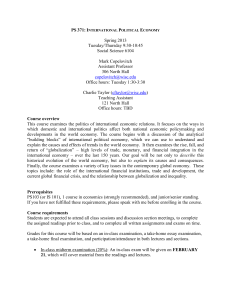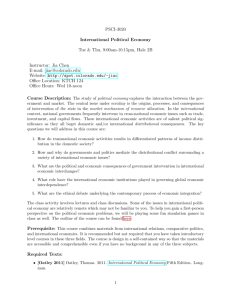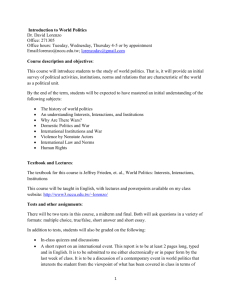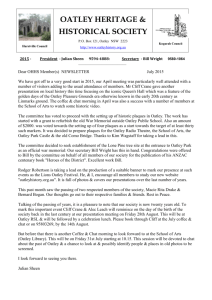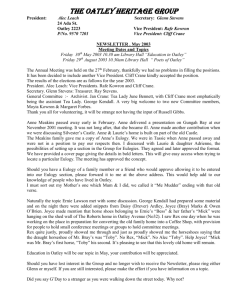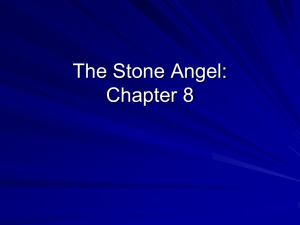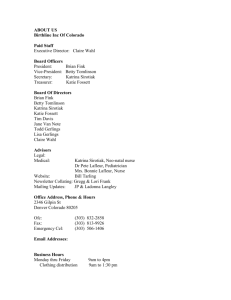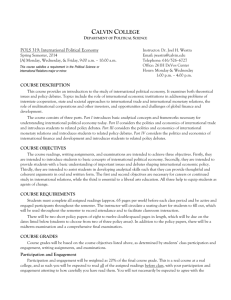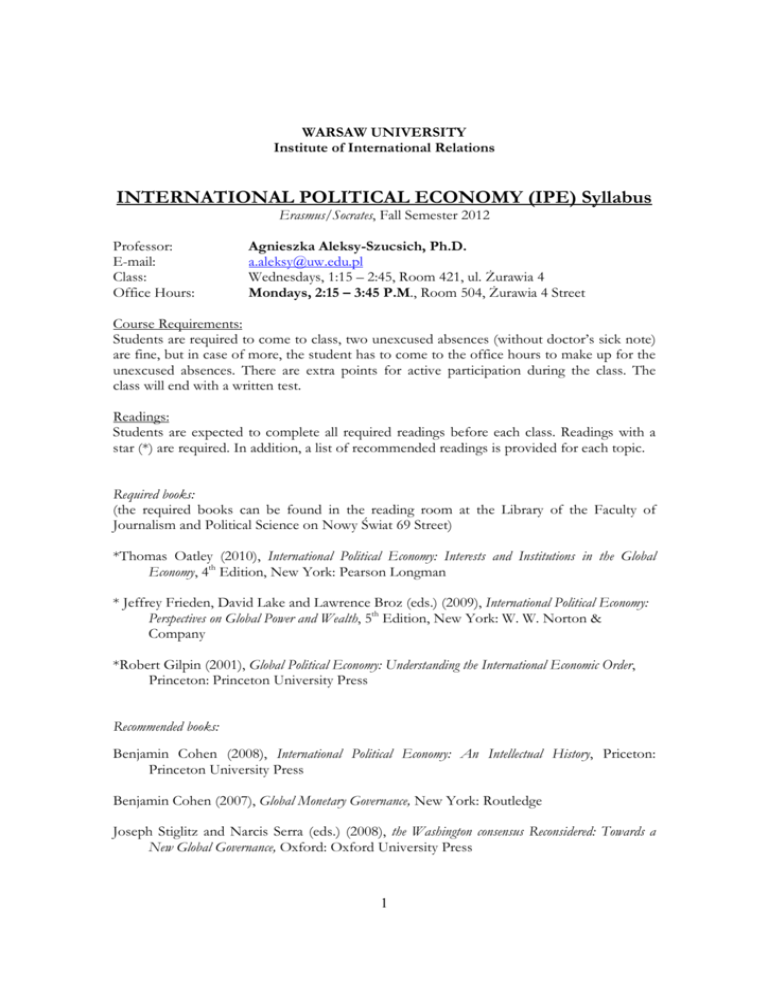
WARSAW UNIVERSITY
Institute of International Relations
INTERNATIONAL POLITICAL ECONOMY (IPE) Syllabus
Erasmus/Socrates, Fall Semester 2012
Professor:
E-mail:
Class:
Office Hours:
Agnieszka Aleksy-Szucsich, Ph.D.
a.aleksy@uw.edu.pl
Wednesdays, 1:15 – 2:45, Room 421, ul. Żurawia 4
Mondays, 2:15 – 3:45 P.M., Room 504, Żurawia 4 Street
Course Requirements:
Students are required to come to class, two unexcused absences (without doctor’s sick note)
are fine, but in case of more, the student has to come to the office hours to make up for the
unexcused absences. There are extra points for active participation during the class. The
class will end with a written test.
Readings:
Students are expected to complete all required readings before each class. Readings with a
star (*) are required. In addition, a list of recommended readings is provided for each topic.
Required books:
(the required books can be found in the reading room at the Library of the Faculty of
Journalism and Political Science on Nowy Świat 69 Street)
*Thomas Oatley (2010), International Political Economy: Interests and Institutions in the Global
Economy, 4th Edition, New York: Pearson Longman
* Jeffrey Frieden, David Lake and Lawrence Broz (eds.) (2009), International Political Economy:
Perspectives on Global Power and Wealth, 5th Edition, New York: W. W. Norton &
Company
*Robert Gilpin (2001), Global Political Economy: Understanding the International Economic Order,
Princeton: Princeton University Press
Recommended books:
Benjamin Cohen (2008), International Political Economy: An Intellectual History, Priceton:
Princeton University Press
Benjamin Cohen (2007), Global Monetary Governance, New York: Routledge
Joseph Stiglitz and Narcis Serra (eds.) (2008), the Washington consensus Reconsidered: Towards a
New Global Governance, Oxford: Oxford University Press
1
COURSE OUTLINE
PART I. INTRODUCTION
1. IPE and the Contemporary International Economic Order
Required Readings:
*Oatley, ch. 1, 2.
*Frieden, Lake & Broz, Introdution, pp. 1-19, Historical Perspectives, pp. 83-86, ch. 8.
*Gilpin, ch. 1, 2, 3.
Recommended Readings:
S. Strange (1970), “International Economics and International Relations: A Case of
Mutual Neglect”, International Affairs, 46: 2.
J. Frieden and L. Martin (2002), “International and Political Economy: Global and
Domestic Interactions”, in: I. Katnelson and H. Milner (eds.), Political Science: State of
the Discipline, New York: N.W. Norton & Company.
Cohen, B. J. (2008), ch. 1, 2, 3, 4.
PART II. TRADE
2. International Trading System
*Gilpin, ch. 8, 13.
*Oatley, ch. 2, 3.
*Frieden, Lake & Broz, Trade, pp. 337-340, ch. 19, 23.
B. Hoekman & M. Kostecki (2001), The Political Economy of the World Trading System,
Oxford: OUP, pp. 1-46.
A. Narlikar (2005), The WTO: A Very Short Introduction, Oxford: OUP.
Third World Network (2001), Multilateral Trading System: A Development Perspective.
R. Fiorentino, L. Berdeja & C. Toqueboeuf (2007), “the Changing Landscape of
Regional Trade Agreements: 2006 Update”, WTO Discussion Paper, No. 12.
E. Mansfield & H. Milner (1999), “The New Wave of Regionalism”, International
Organization, 53: 3.
J. Bhagwati (1992), “Regionalism versus Multilateralism”, The World Economy, 15.
3. Domestic Politics of International Trade
*Frieden, Lake & Broz, ch. 20, 21.
*Oatley, ch. 4, 5.
H. Milner, (2002), “International Trade”, in: W. Carlnaes et. al. (eds), Handbook of
International Relations, New York: Sage.
A. Krueger (1974), “The Political Economy of the Rent-Seeking Society”, American
Economic Review, 64
2
PART III. MONEY and FINANCE
4. International Monetary and Financial System
*Gilpin, Ch. 10.
*Frieden, Lake & Broz, Money and Finance, pp. 217-221, ch. 15, 17.
*Oatley, ch. 10, 11, 15.
B. Cohen (2007), Global Monetary Governance, ch. 4, 5.
R. Wade (Sept-Oct 2008), “Financial Regime Change”, New Left Review, 53.
5. Multinational Corporations
*Gilpin, ch. 11.
*Frieden, Lake & Broz, Production, pp. 153-156, ch. 9, 10, 11, 12, 16.
*Oatley, ch. 8, 9, 12, 13.
N. Jensen (Summer 2003), “Democratic governance and Multinational Corporations:
Political Regimes and Inflows of Foreign Direct Investment”, International
Organization, 57.
L. Broz & J. Frieden (2001), “The Political Economy of International Monetary
Relations”, Annual Review of Political Science, 4.
B. Cohen (2002), “International Finance”, in: W. Carlnaes et. al. (eds), Handbook of
International Relations, New York: Sage.
PART IV. DEVELOPMENT
6. Economic Development: Main Issues and Debates
*Gilpin, ch. 12.
*Frieden, Lake & Broz, Economies in Development, pp. 443-446, ch. 25, 28.
*Oatley, ch. 6, 7.
S. Maxfield (2002), “ International Development”, in: W. Carlnaes et. al. (eds), Handbook
of International Relations, New York: Sage.
H. Chang (2000), Kicking Away the Ladder: Development Strategy in Historical Perspective,
London: Anthem Press, ch 1, 2.
3
7. Institutions of Global Governance and the Inequalities of Power and Wealth
*Gilpin, ch. 15.
*Oatley, ch. 14.
*Frieden, Lake & Broz, ch. 18, 26.
D. Rodrik (December 2006), “Goodbye Washington Consensus, Hello Washington
Confusion”, Journal of Economic Literature, XLIV, pp. 969-983.
J. Stiglitz & N. Serra (eds.) (2008), The Washington Consensus Reconsidered, ch. 1, 2, 4, 16,
17.
D. Rodrik (2007), One Economics, Many Recipes: Globalization, Institutions, and Economic
Growth, Princeton University Press.
PART V. GLOBALIZATION
8. Globalization: the Causes and Consequences
*Gilpin, ch. 14.
*Oatley, ch. 16.
*Frieden, Lake & Broz, Current Problems in International Political Economy, pp. 505506, ch. 30, 31.
B. Cohen (2008), International Political Economy: An Intellectual History, ch. 5.
G. Garrett (Autumn 1998), “Global Markets and National Politics: Collision Course or
Virtuous Cycle?”, International Organization, 52: 4.
S. Sharma (2008), “The Many Faces of Today’s Globalization: A Survey of Recent
Literature”, New Global Studies, 2: 2.
D. Rodrik (July 2008), “Death of the Globalization Consensus”, Emirates Business, 24/7.
D. Dollar & A. Kraay (Jan/Feb 2002), “Spreading the Wealth”, Foreign Affairs, 81: 1.
9. Final Exam
4

